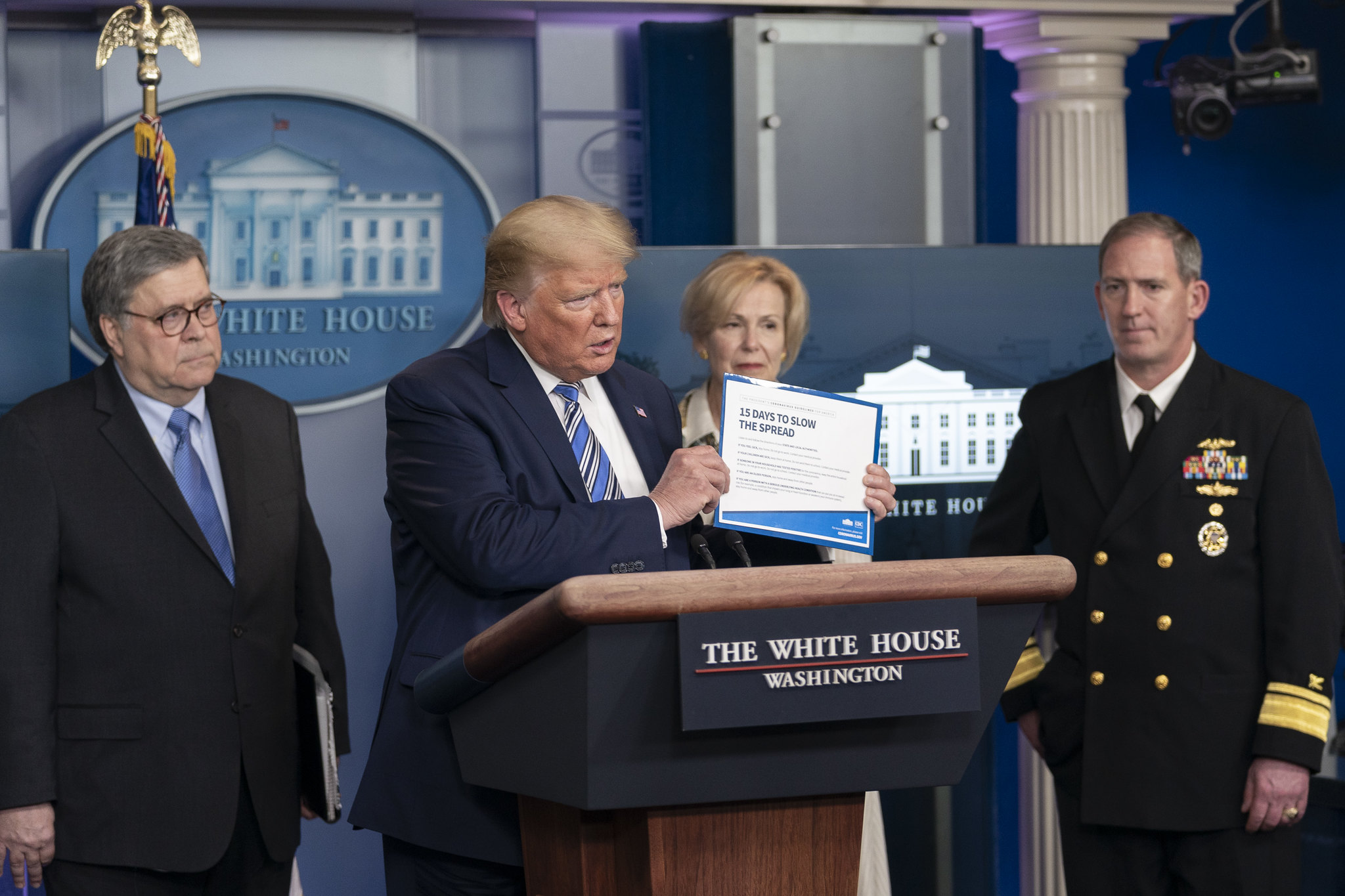The Promise and Pitfalls of a Coronavirus Commission
A proposed coronavirus commission could provide a fuller picture of the government’s response to the pandemic. But its success depends on how it is staffed.

Published by The Lawfare Institute
in Cooperation With

Earlier this year, a bipartisan group of lawmakers in the Senate and the House introduced bills to create an independent commission in the style of the 9/11 Commission to study the government’s response to the coronavirus pandemic. Unlike the partisan wrangling—and in particular Republican opposition—that defeated a similar effort to create a commission to investigate the Jan. 6 assault on the Capitol, this legislation has not spurred significant disagreement. In fact, it hasn’t spurred much of anything at all; there has been little movement on either bill since they were introduced in February. But earlier in June, Sens. Bob Menendez and Susan Collins, the original sponsors of the Senate version of the bill, published an op-ed in the New York Times urging their colleagues to support the legislation—a possible sign that legislators are beginning their push to pass the bill.
If passed, the legislation would establish a 10-member Commission on the Coronavirus Pandemic in the United States, made up of “prominent Americans with expertise in government service, public health, commerce, scientific research, public administration, intelligence gathering, national security, and/or foreign affairs.” (The omission of legal expertise feels like an oversight, given the complex regulatory issues at play.) Democrats and Republicans would get to pick the same number of members, with the chair selected by President Biden and the vice chair by Republican congressional leadership. Per the legislation, at least one member would be a former governor, one a public health expert and one an economic policy expert.
The members, all nongovernmental appointees, would be tasked with assessing the United States’s pandemic readiness and response, as well as with making recommendations for improving the country’s preparedness for future public health crises. The commission would investigate the causes of the pandemic, which could include both the origin of the coronavirus and the international and domestic spread of the virus. It would also have a broad mandate to assess the government’s response to a range of issues such as communication with foreign governments, intergovernmental coordination, interagency information sharing, vaccine distribution and supply chain vulnerabilities.
The bill gives the commission some teeth by way of subpoena power to compel witness testimony. Like the 9/11 Commission and the recently proposed Jan. 6 commission, the new commission requires the agreement of the chair and vice chair or the majority vote of the panel to issue a subpoena, which means that at least one member would need to cross party lines for a subpoena to be issued. The legislation would give the commission 18 months after its creation to hold public hearings and issue a public report of its findings and policy recommendations.
The proposed pandemic commission follows in a long line of commission proposals modeled after the congressionally created 9/11 Commission, which was broadly viewed as a success: The independent, bipartisan commission wrote a detailed history of the events leading up to the attacks and issued proposals that led to significant structural changes within the government.
In looking to the structural features of the 9/11 Commission as a model, however, proponents of the coronavirus commission may be missing the mark. What is notable about the 9/11 Commission is that its success may well have been in spite of, rather than because of, its structure. Although the 9/11 Commission was ultimately able to review the documents it needed and interview key government decision-makers (including President George W. Bush and Vice President Dick Cheney), it faced substantial initial resistance from the secretive Bush administration—so much so that the commission’s heads later argued that it had been “set up to fail.” Fortunately, the Biden White House has every incentive to cooperate fully with a coronavirus commission, given, among other things, the political benefits of highlighting the Trump administration’s failures.
Unfortunately, any pandemic commission will have to contend with partisan polarization that is far higher today than it was 20 years ago, both as a general matter and specifically around the government’s response to the issue under investigation. The high degree of national unity following 9/11 has been conspicuously absent during the pandemic, and Trump’s looming influence on the Republican Party continues to make a bipartisan narrative difficult. Like the 9/11 Commission, the pandemic commission’s membership would be evenly divided between Democrats and Republicans. But while the 9/11 Commission was able to act in a bipartisan way, the pandemic commission could easily get bogged down in intracommittee partisan gridlock, especially if Republicans appoint coronavirus or vaccine denialists. In this regard, an odd number of commissioners may be preferable to the even-numbered 10 in the proposed legislation.
Of course, the risk of gridlock might be a feature, not a bug. If Republicans are uninterested in a rigorous after-action report, a milquetoast commission might be the price of finding the necessary additional Republican votes in the Senate to pass the commission legislation. Trump will no doubt perceive any discussion of his administration’s bungled coronavirus response as a personal attack and will punish the Republican commissioners (and any Republican politicians who support them) accordingly. Assuming all Senate Democrats vote for the bill, it may be difficult to find nine Republican senators (beyond co-sponsor Collins) to take the risk of supporting a commission that might criticize the former president.
Then again, there may be enough common ground to garner sufficient Republican support. The failure of U.S. pandemic policy was bipartisan, with blue states like New York and California often underperforming their red-state counterparts. And it is notable that the proposed legislation includes the origins of the pandemic as an explicit focus. Even if the commission ultimately rejects the lab-leak hypothesis, it will find plenty to criticize in China’s handling of the outbreak, which should please Senate China hawks like Tom Cotton. The coronavirus response presents a target-rich environment for criticism, and an unlikely convergence of political interests could result in bipartisan support for a blame coalition.
If the commission legislation is enacted, the selection of committed, independent-minded commissioners will be critical to the commission’s success. Democrats, for their part, will need to ensure that their commissioners focus not simply on the Trump White House but, rather, on structural factors, as well as missteps made by Democratic governors. But the most important issue will be whether Republican leadership is willing to appoint commissioners who will hold the Trump administration to account for its failures, no matter the political cost.





.jpg?sfvrsn=8588c21_5)
